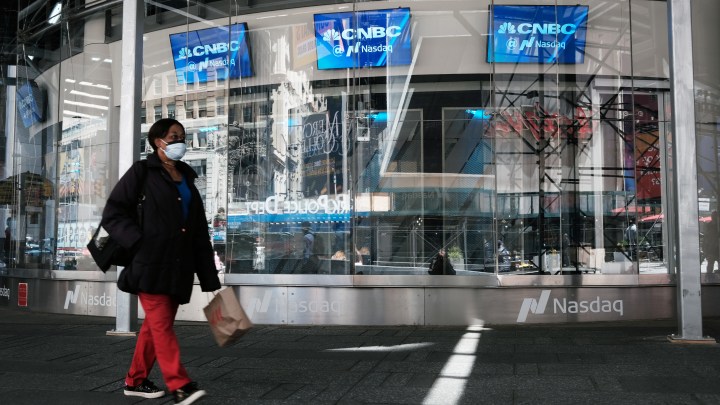
“Moral hazard” at banks isn’t just a theoretical concern
“Moral hazard” at banks isn’t just a theoretical concern

You’ve probably heard it by now — the shorthand number — $250,000.
That’s the amount of money the Federal Deposit Insurance Corporation will cover for a customer — in most cases — if their bank goes under. But that rule has been bent lately, with the sudden failure of two mid-sized U.S. banks.
Patricia McCoy, a professor at Boston College Law School and an expert in financial services regulation, said more insurance can encourage banks to take unnecessary risks, leading to what economists call “moral hazard.” Marketplace’s David Brancaccio spoke with her before the news broke that Treasury Secretary Janet Yellen stands ready to insure more than the normal $250,000 limit at smaller banks.
The following is an edited transcript of their conversation.
David Brancaccio: As we get more days under our belt, thinking about that dramatic step at Silicon Valley and Signature banks of making sure that even uninsured deposits got back to depositors, where are you on the wisdom of that step?
Patricia McCoy: I’m very worried with the actions that we saw a week ago, that we will now have much higher risk-taking in the banking system. There’s a lot of research that shows in countries that have very high deposit insurance caps or no cap at all — unlimited deposit insurance — banks gamble with depositors’ money to a much higher degree.
Brancaccio: That’s really interesting. I thought this was going to be a theoretical discussion. But you’re saying there are real-world data out there from other countries that have different systems that show a connection that if you guarantee more, or everything, you get more risk-taking?
McCoy: That’s exactly right. There are countries that are far less generous than our country is with the extent of deposit insurance and they seem to have fewer bank crises.
Brancaccio: Some voices in Congress were mulling over this notion of insuring all deposits. That is not something you would like to see?
McCoy: No, no. And I don’t think that there’s any need for that. Most people, most ordinary people are not remotely going to hit the deposit insurance cap. What we’re really talking about is protecting very affluent people who keep very large checking or savings accounts at a particular bank, or businesses.
Brancaccio: So if people are absorbing your point about “moral hazard”, as economists call it — that if you guarantee everything, people are going to take risks, because they know there’s a backstop from, say, the federal government. That is one thing, but there’s also this contagion effect in which a bank doing the right thing can get affected if there’s a run at a bank not run as well. And there must be a public interest in stopping the spread of contagion.
McCoy: There is a public interest in stopping the spread of contagion. However, I want to emphasize that we do not have a problem with generalized bank runs at hundreds of banks. The problem of bank runs is that a very limited number of banks that ran themselves recklessly. They did not hedge the risk that interest rates would go up. And they had very little cash on hand available to pay depositors if they started to have elevated withdrawals.
There’s a lot happening in the world. Through it all, Marketplace is here for you.
You rely on Marketplace to break down the world’s events and tell you how it affects you in a fact-based, approachable way. We rely on your financial support to keep making that possible.
Your donation today powers the independent journalism that you rely on. For just $5/month, you can help sustain Marketplace so we can keep reporting on the things that matter to you.

















